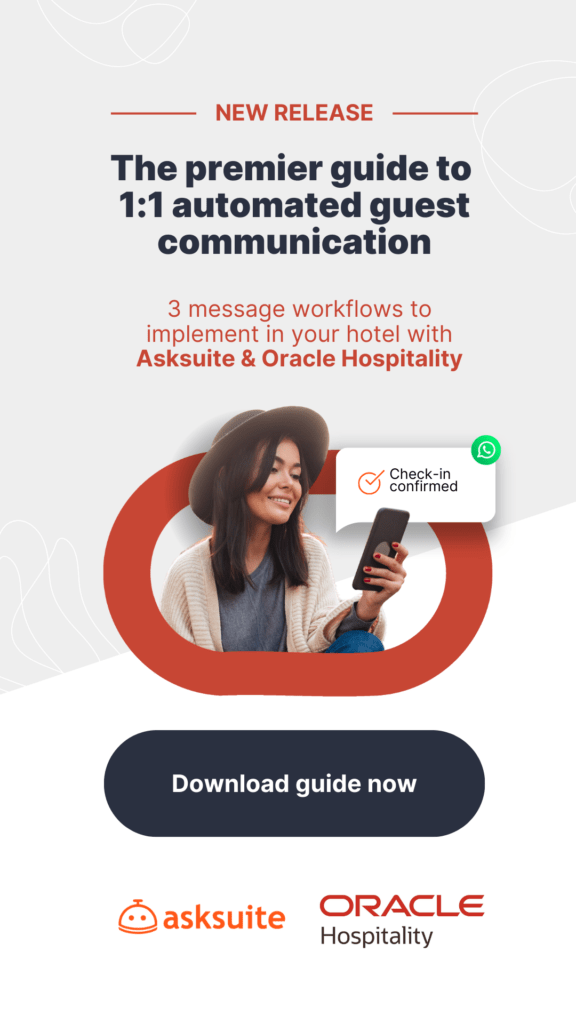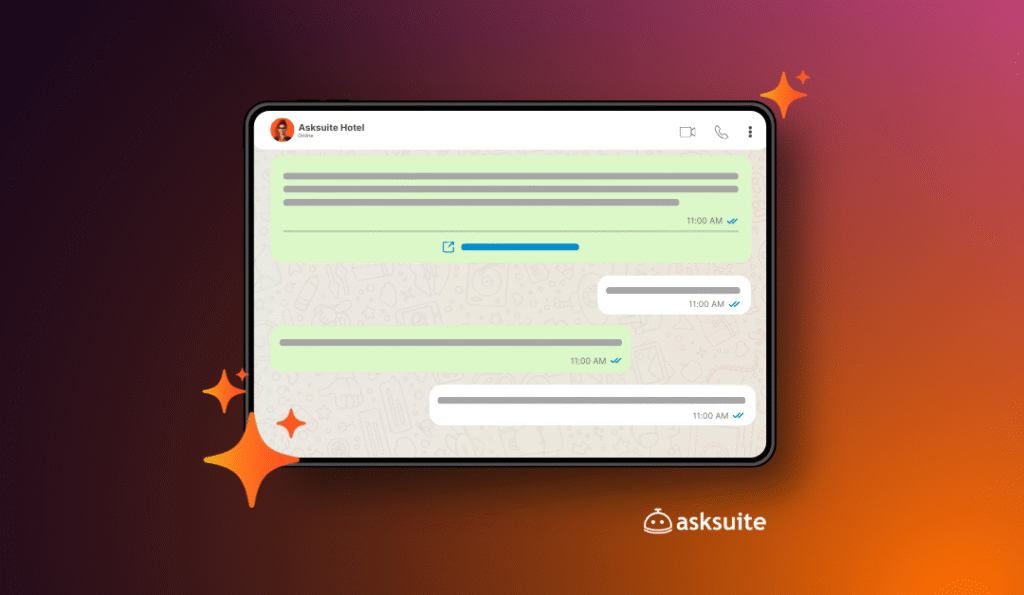“I hate overbookings”, says the “walked” guest.
“Overbooking is a great strategy”, says the hotel manager.
Who is right?
Both.
Hotels may not admit it to the guests, but overbooking is a common revenue strategy. Guests, on the other hand, don’t care about the high rate of cancellations and how it impacts the total revenue and profitability. Guests just want the rooms they have booked. Period.
Consequently, a bad overbooking strategy can cause a lot of damage and a whole lot of stress: from guests to associates. It often leads to bad online reviews, harm to your online reputation, financial loss, and “real-life” complaints.
Nevertheless, a good overbooking strategy can bring many benefits. What makes it good? Planning. So it’s not a matter of if you should do it. It’s about HOW you do it.
If you plan it right, you open the door to revenue optimization and even guest satisfaction. But you have to be prepared for all the possible scenarios for this to work.
Here is this post we will show you how to create an effective overbooking strategy that minimizes the collateral effects and give you tips on how you deal when the worse happens and turn the bad experience into a positive one.
Overbooking definition and why it happens
You probably know by now what overbooking is. But in case you are not sure, in a nutshell, overbooking is when you sell more rooms than you actually have, leaving potential guests “room-less”.
These are the main reasons why it happens:
- an unpredictable event reduces your room inventory on a sold-out night. For example, a broken air conditioner;
- bad management of the revenue channels or bad data analysis;
- System setup errors;
- Simultaneous bookings — the same room from different channels at the same time is booked by different people. Even a good channel manager refreshes every minute or so, leaving an unavoidable small window where multiple guests can book the same room.
As a strategy or a simple mistake, overbooking is quite common in the hotel industry. Probably every hotel has experienced it at least once.
It’s worth to mention though that it is considered illegal in some countries and the hotel might be exposed to a lawsuit when walking a guest. Not to mention exposed to the guest’s anger and bad reviews, promoting a bad online reputation.But, if it can bring so many risks, why do hotels overbook?
Hotels adopt overbooking as a strategy because a room that goes empty a night jeopardizes your annual revenue. Basically, because it cannot be sold twice the next night or any other night. That is the main reason why overbooking is practiced. It is a low risk (when done right) and the oldest most commonly used method to increase profitability.
In this episode of the Hotel Cast Podcast, we chat with Kate Burda, CEO and Founder of Kate Burda & Co, on how to revamp your revenue strategy. Listen here:
An overbooking strategy is not a shot in the dark
An overbooking strategy can be very beneficial or damaging to hotels. It all depends on how well it is planned. Although guests, understandably, see overbooking as a negative situation, if the strategy is done based on calculations, the potential of optimization of the revenue is great and it can be positive to the hotel.
That means you can’t just close your eyes and wish for the best. For overbooking to become a strategy and not a simple mistake, it will require a lot of data analysis. Again, we are not talking about guessing. We are talking about probability.
In order to succeed, the overbooking strategy requires professionally trained and experienced staff to reduce the risk of miscalculation. But miscalculation of what exactly?
Overbooking is when you sell more than you have, right? Yet, hotels also have a number of booking cancellations every month. So sometimes it might seem that a hotel has an overbooking, but in fact, it doesn’t, simply because it has more cancellations than overbooked rooms in the day.
With that said, this plan of action is based on the presumption that a certain percentage of bookings will not show up. Hotels book more room than are in fact available on purpose because they know that the overbooking number is not “real”.
Why is that important? If the hotel can’t reach full occupancy, it can’t also reach full revenue potential. With the overbooking strategy, you can maximize occupancy and average room rate and, at the same time, minimize empty rooms and cancellations.
In a nutshell, to be strategical, the overbooking must be calculated, planned and only a few will actually happen while maximizing the hotel’s revenue.

4 tips essential to create an effective overbooking strategy
- Collect as much historical data as you can. Again, this strategy is based on probability, so you need to have your numbers right. Calculate the percentage of cancellations you usually have for that time period to predict how many guests will cancel on a given night.
- Analyze the number of incoming bookings for the day against your normal last-minute cancellations and no-shows. With this detail, you’ll know if you need to relocate any booking.
- Keep monitoring new reservations, canceled reservations, and current availability. All the time.
With these data, you will be in control of the overbooking monster and will get the best of it.
In partnership with RM HUB, we put together 5 Must-Have Revenue Management Checklists for hotels: Daily Checklist, Weekly Checklist, Monthly Checklist, Quarterly Checklist, Annual Checklist. Download it for free here:
Revenue Management ChecklistsWhen the strategy backfires
As we said before, without historical and real-time data, any overbooking strategy is just a shot in the dark, which will lead to a negative financial impact, negative publicity, and loss of traveler and partner trust.
It’s worth pointing out that it is not advisable to use an overbooking strategy over special dates or city events. Not only because the chances of cancellations are low, but also the chances of finding another lodging for the overbooked guest is low, so the solution gets even more complicated.
When a guest book with you, expectations are created. And the first, and basic, one is that he/she will be staying with you, of course. Not anywhere else. As you can imagine, the be walked in is not an experience that they will kindly appreciate, even if it is just for a night.
To minimize the damages, the best thing to do if overbooking is unavoidable is to contact the guest in advance and advise, when it’s possible. That way their frustration is minimized and they will see this action as a way of you showing that you care.
Just remember to now just give them the problem: the overbooking. But especially the solution: where they are going to stay. Do it in a way so they feel assisted by you.
Depending on the way you handle the situation, it might result in a bad experience and reputation, with negative reviews on the internet. Moreover, when you have to find an alternative arrangement, it might imply higher costs and financial losses on your part.
Walked guests do not have the obligation of paying the difference between lodgings. That is on the hotel’s account. Be also aware that walking guests may lead to decreased customer loyalty. Be very careful about the number of overbookings and who you will going to walk.
Finally, don’t forget that overbooking situations are also stressful for hotel front-desk agents. Be sure to train and instruct your staff properly and give them the support they need to handle this tough situation.
How to decide who is going to be walked?
There are some factors that play key roles in this decision:
- is it the guest’s first time staying with you?
- is the guest a member of your loyalty program?
- is the guest staying just for one night?
- what is the room rate?
- what type of room did the guest book?
Frequently, the guest who is walked is the last one to arrive at the hotel. But that is not a wise strategy. The factors above play a significant role in the results and impacts of overbooking. Analyze each case and take the best possible decision you can based on the information you have.
Overbooking is here. What should I do?
Even when well-planned, there is still a chance for a “real overbooking”, which is not good neither for hotels or guests. That happens mostly because of the age of complicated distribution networks that we operate in.
It is imperative to be ready when it happens and to always have a backup plan. Like we said before, whenever it is possible, let the guest know about the overbooking before he/she gets at your hotel lobby ready to do a check-in.
Guests relocated at the desk are generally very frustrated and upset – for good reason. Emotional intelligence is crucial here. Don’t let the guest’s emotions control yours.
Work with hotel partnerships. Overbooking happens to everyone so usually hotels cooperate with each other. After all, you never know when you are going to need it too, right?
Start by creating a list of properties you can develop this kind of relationship. Check their value and quality to be sure they are similar to yours. The partnership can be in the form of discounted room rates or exchange for the same courtesy.
Get ready, get set, and action – practical tips for overbooking management
Get prepared for overbookings. Here are 7 tips according to Cloudbeds:
- Determine where the overbookings came from and close the source;
- Display genuine care and empathy;
- Begin calling other local properties that you partner with for this situation;
- Make sure they know exactly what compensation is being provided;
- Upgrade guests upon return or offer some other sort of compensatory action;
- Follow up with the guests to make sure they are satisfied;
- Create a guest recovery plan.
Overbooking for hotels is a revenue management strategy that helps to maximize the total capacity and increase room revenue. When overbooking is done based on past statistics then chances of miscalculation decreases
Make sure your overbooking is right on target, not a shot on your foot!





